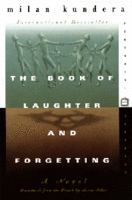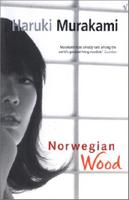Recently read and adored
 Milan Kundera's Book of Laughter and Forgetting. I keep tearing pages out of his novels that I want either to share with someone who weighs on my mind, or else to stick somewhere that I will stumble across much later so that I have the joy of reading it again. (As of such, one of my readers will recognize the next few lines. Forgive me, as I will recycle my thoughts for my blog.)
Milan Kundera's Book of Laughter and Forgetting. I keep tearing pages out of his novels that I want either to share with someone who weighs on my mind, or else to stick somewhere that I will stumble across much later so that I have the joy of reading it again. (As of such, one of my readers will recognize the next few lines. Forgive me, as I will recycle my thoughts for my blog.)Kundera spoke of woman as an object - relating her to a tool such as a hammer while maintaining man as man and master. I bristled at this initial comparison. The rationalization that followed, however, rang completely true.
Kundera wrote that men have the power to change women into objects, tools as utilitarian as hammers, to perceive them as instruments and nothing more. A woman then has an equal power to return this appraisal, to gaze back as an object with all the knowledge of self and self-ability. This may strip the man of his power.
I think this is where many modern feminists made their stand. They rooted here and rebelled against the hands that tried to wield them.
Kundera goes one step farther, and I walk with him. A good worker (man) must be able to accept this transformation from object to living being, bear the power of the tool, then, with firm hand, and turn her back into an object.
"A tool knows exactly how it's meant to be handled," wrote Kundera. "The user of the tool can only have an approximate idea."
There was a time when I accepted incompetent masters as I believed that a lacking master was better than no master. Let me at least flatten bread if I cannot build castles. Maybe I still believe this, but I am no longer grateful to be breaking my body against soft souls.
This rationalization is a creatively disguised weakness. To seek a master declares passivity. Passivity repulses me. To say that I have not reached my full potential (in self, in love, in creativity, in experience) because I have not found a master capable of wielding my powers is a convenient cop-out.
We must also not forget that the master does not serve the tool. The tool is not glorified in the final work. The man who directed and manipulated the tool is exalted.
Who will be exalted?
Still, I would be thrilled to lose myself in a consuming work, even if the castle is not of my own design.
 While Kundera's book took m a while to absorb in bits and pieces in scattered reading sessions, I swallowed up Haruki Murakami's "Norwegian Wood" in just two sittings. This author has been recommended to me countless times. I finally read his book "Hard Boiled Wonderland at the End of the World" and HATED it. I could find no solid ground to stand on and no reason to wander through his strange universe. But, as so often this author's name was presented to me, I tried again with this, his most popular novel. Amazing. I loved it. I want to read it five more times, wait until I can forget most, then read it five more times. There were so many creepy instances when either I or my actions were perfectly described on the pages (see an example in the previous post). The characters certainly did not mirror me in entirety, but those slick clear passages that did ring true were almost embarrassingly revealing. I have felt this once before, with a Kundera book no less ("The Unbearable Lightness of Being").
While Kundera's book took m a while to absorb in bits and pieces in scattered reading sessions, I swallowed up Haruki Murakami's "Norwegian Wood" in just two sittings. This author has been recommended to me countless times. I finally read his book "Hard Boiled Wonderland at the End of the World" and HATED it. I could find no solid ground to stand on and no reason to wander through his strange universe. But, as so often this author's name was presented to me, I tried again with this, his most popular novel. Amazing. I loved it. I want to read it five more times, wait until I can forget most, then read it five more times. There were so many creepy instances when either I or my actions were perfectly described on the pages (see an example in the previous post). The characters certainly did not mirror me in entirety, but those slick clear passages that did ring true were almost embarrassingly revealing. I have felt this once before, with a Kundera book no less ("The Unbearable Lightness of Being"). This morning I finished one more book - "Botchan" by Natsumi Soseki. Soseki is one of my favorite writers - also very famous in Japan. Botchan was enjoyable, but not as good as the others I have read by him. For those interested in Soseki, I still recommend "And Then."




0 Comments:
Post a Comment
<< Home